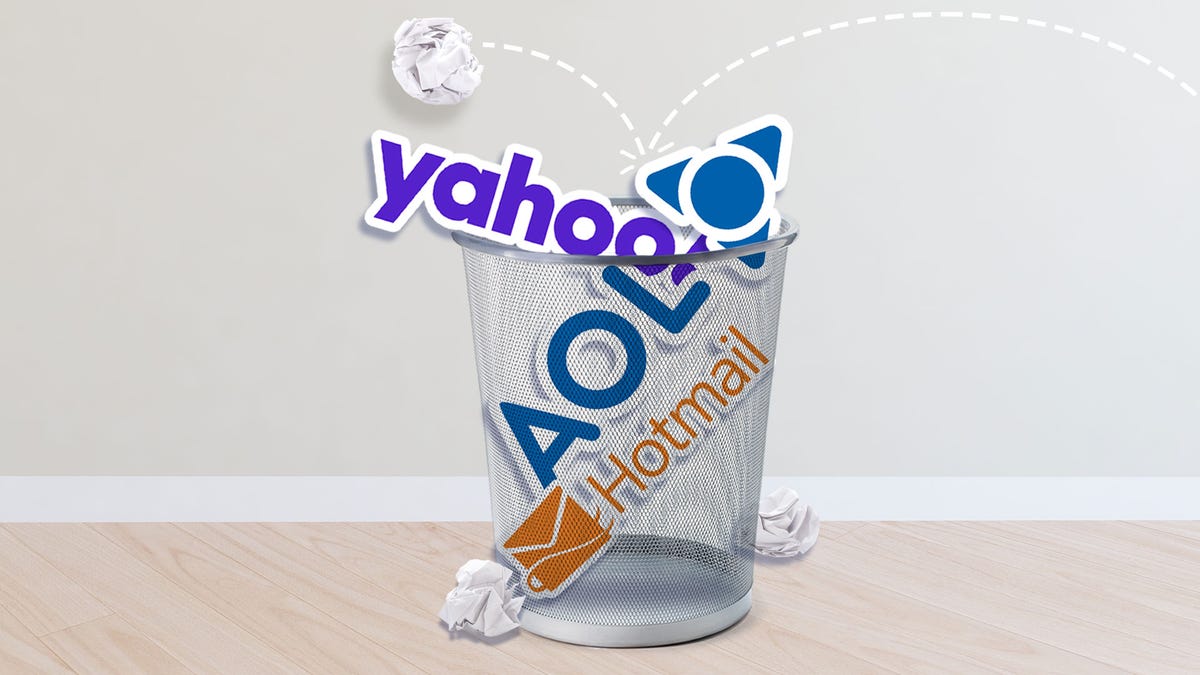Your Old Email Address Is Hurting Your Job Prospects
Email is old. In its earliest incarnation, email dates back to 1965—a time when computers were the size of elephants and only a small number of nerds had regular access to them—and the kind of email we recognize today...

Email is old. In its earliest incarnation, email dates back to 1965—a time when computers were the size of elephants and only a small number of nerds had regular access to them—and the kind of email we recognize today dates back to the early 1970s.
Since then, email has become a staple of modern life, revolutionizing all of our personal and professional communications (not to mention evolving into a spam hose and distracting the hell out of us). And while the kids hate email and generally prefer to communicate using almost any other tool, there’s one place where email remains king: the office.
Businesses love email, and if you’re hunting for a job, you’ll be using email a lot. But you should be careful, because the email address you use says something about you to hiring managers.
Email can announce how savvy you are on the internet
One of the easiest “tells” your email can offer recruiters and hiring managers is your age. If you’re using an AOL.com address, everyone is going to assume you’re not only an older person (the bulk of AOL.com users today are over 50 years old), but an older person who isn’t terribly savvy about the internet. The same can be said for Hotmail email addresses (or an Outlook.com address, which is what Microsoft converted old Hotmail addresses to back in 2013).
For some folks, keeping an old AOL.com address is for ease; for others, it’s nostalgia—for a lot of people of a certain age, AOL.com was their first-ever email address and they’re reluctant to get rid of it. Even having an older Apple address like yourname@me.com or yourname@icloud.com gives a clue as to your vintage.
It’s obviously illegal for hiring managers to discriminate against you due to your age, and hanging onto an old email address isn’t any reliable indicator of your abilities. But everyone has unconscious bias, so why would you give them a reason to deprecate your application? Keep your old address for personal use and set up a Gmail account for everything else (better yet, create a specific email for your job search).
Email can suggest immaturity
Many of us set up our first email address in our youth. My first email was “Linknull,” for reasons that I can no longer adequately explain (I’m sure there was an inside joke now lost to the sands of time). And if you were a teenager or young adult when you set up your first email address, there’s a non-zero chance it contains an off-color reference, inside joke, outdated pop culture reference, or the numbers 420 or 69.
It should be obvious, but using an email like “bongwater69@gmail.com” is going to give companies a poor first impression. Don’t assume your joke or reference is so obscure or cutting-edge no one in the business world will get it—everyone was 16 once, and the corporate world is filled with people flying under the radar.
Email can suggest a lack of sophistication
Things become standards for a reason. You might disdain Google as a company (for being a privacy nightmare, for example), but Gmail has become the true neutral of email addresses. Using an old email like AOL.com or a weird email from your school days can indicate to people that you’re incapable of switching email addresses or unaware of how it makes you look—or unaware that you have other options. In today’s tech-soaked world, planting the idea that you can’t master something as easy as setting up a Gmail account isn’t a good move when trying to convince someone to pay you.
Use a proper email address for your job search
There’s a time and place for that address to reflect your age, personality, and attitude—but the job hunt isn’t it. Your email address is a forward-facing aspect of your identity, and while an old (or odd) email won’t necessarily disqualify you from being considered for a job, there aren’t many good reasons to take the chance.

 Fransebas
Fransebas 
































